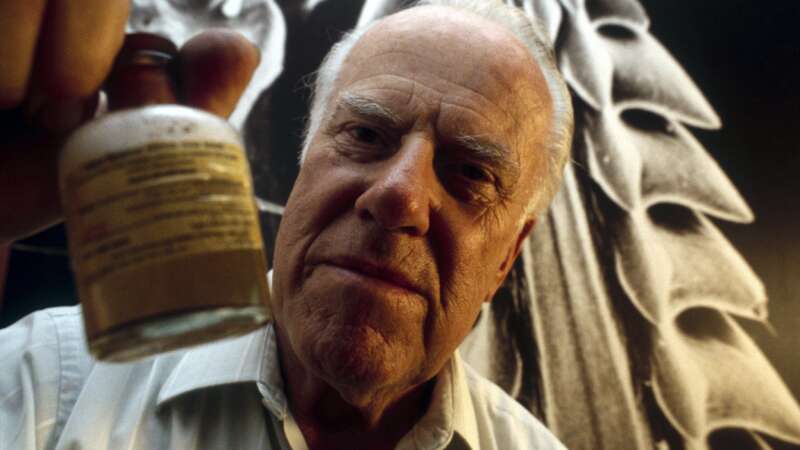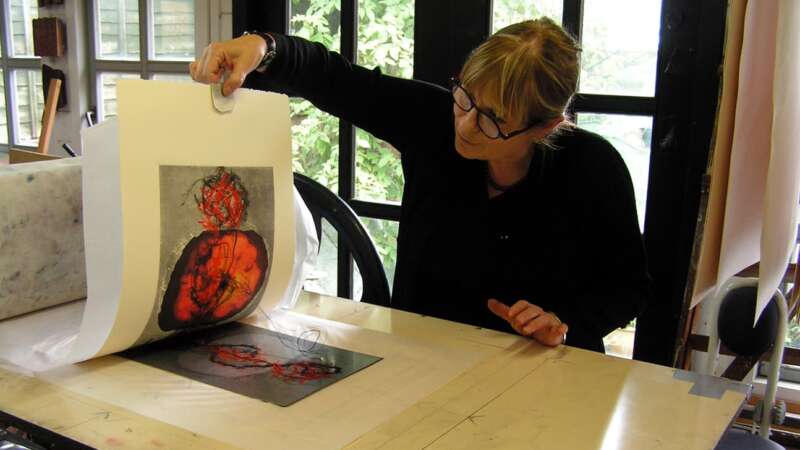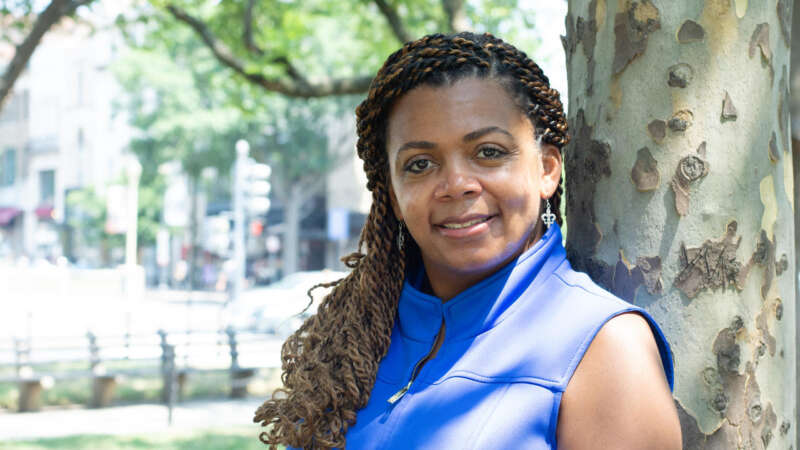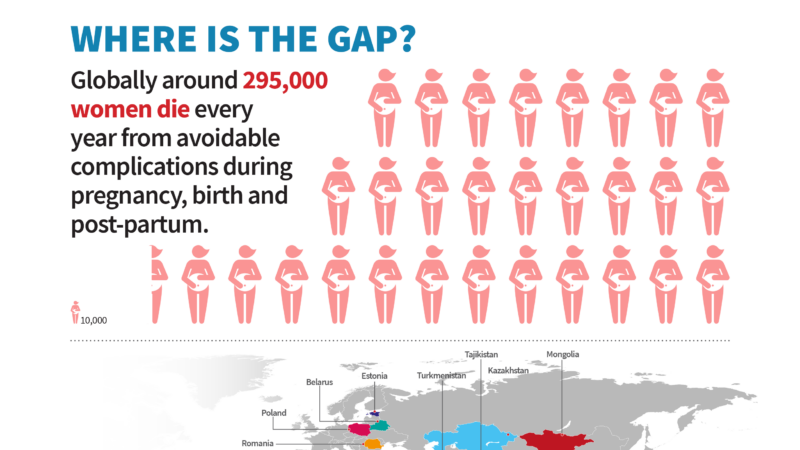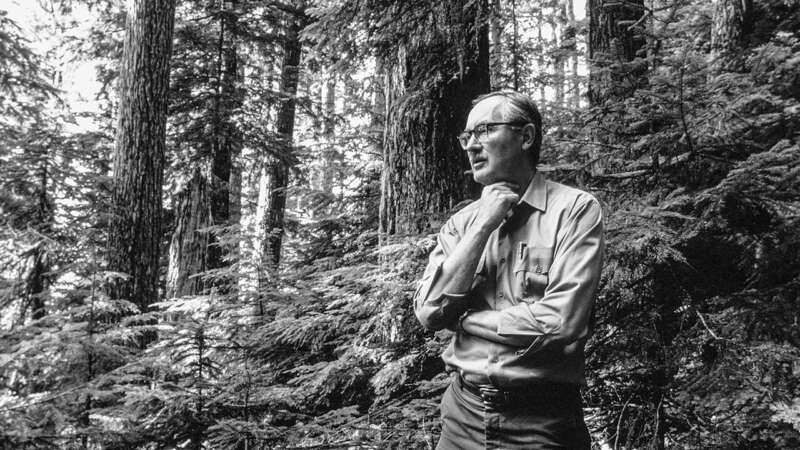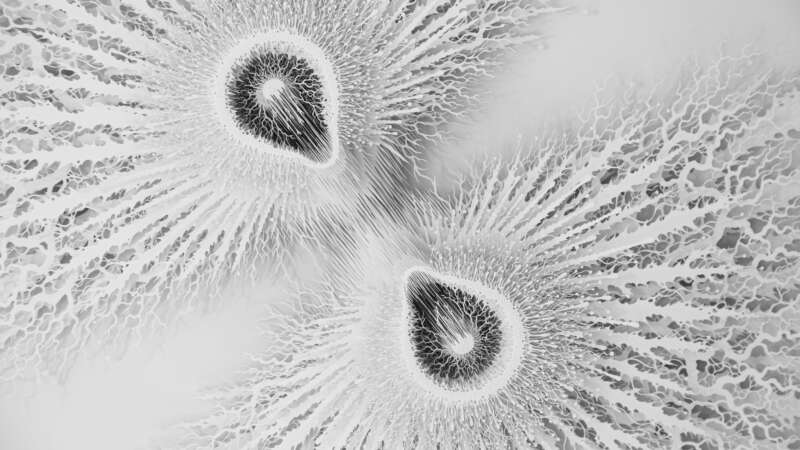Culture
Dr. Willy Burgdorfer: One Tick at a Time
Dr. Willy Burgdorfer, born on June 27, 1925, in Basel, Switzerland, is known for transforming the understanding of tick-borne illnesses.
Burgdorfer pursued his undergraduate and doctoral studies in parasitology and tropical bacteriology at the University of Basel – where he first developed his fascination with ticks while studying how these arthropods transmitted spirochetes that caused relapsing fever. In 1951, Burgdorfer moved to the United States for a fellowship in Montana at the Rocky Mountain Laboratories (RML) – a National Institute of Health biomedical research facility for vector-borne diseases, such as Rocky Mountain spotted fever, Lyme disease and Q fever.
Susan Aldworth: Cultivating Art from the Brain
Susan Aldworth, born in 1955, is an artist known for her exploration of consciousness, identity, and the human mind. With a background in philosophy, Aldworth’s exemplifies the blend of art and science and establisher her as a significant figure in the UK’s Art & Science movement since the late 1990s.
Her creative practice utilizes various mediums, including printmaking, drawing, installation, and time-based media, bringing into light the lived experiences of individuals, particularly those related to medical and psychological conditions.
Aldworth’s work is featured in prestigious collections such as the Victoria & Albert Museum, the British Museum, the Fitzwilliam Museum, and the British Library, and she has exhibited extensively both in the UK and internationally.
Dr. Joia Crear-Perry: Elevating Voices and Challenging Systemic Racism in Health
Dr. Joia A. Crear-Perry is a prominent physician, policy expert, and a dedicated advocate for social justice, particularly in the realm of maternal and child health. As the founder and president of the National Birth Equity Collaborative, she has committed her career to addressing the deep-rooted issues of racial inequities in healthcare.
Dr. Crear-Perry’s work challenges systemic racism as a fundamental cause of health disparities, making her a sought-after speaker and trainer featured in various national and international media, including Essence and Ms. magazines.
The CDC says maternal mortality rates in the U.S. got better, after a pandemic spike
After spiking in 2021, the maternal mortality rate in the U.S. improved significantly the following year, according to a new report from the Centers for Disease Control and Prevention.
The data shows that 817 women died of maternal causes in the U.S. in 2022, compared to 1,205 in 2021. These are deaths that take place during pregnancy or within 42 days following delivery, according to the World Health Organization, “from any cause related to or aggravated by the pregnancy or its management, but not from accidental or incidental causes.”
“I think that the bump [in 2021] reflects the pandemic and we’re returning to pre-pandemic levels,” says study author Donna Hoyert, who a health scientist at the CDC’s National Center for Health Statistics.
Role of Social Determinants in Maternal and Child Health
About 287,000 women died during and following pregnancy and childbirth in 2020. Around 95% of these maternal deaths occurred in low and lower middle-income countries and nearly every death was preventable. Equally, children under the age of five continue to face differing chances of survival based on where they are born and raised.
A child born in sub-Saharan Africa is 11 times more likely to die in the first month of life than one born in the region of Australia and New Zealand, and a 15-year-old girl in sub-Saharan Africa is 400 times more likely to die in her lifetime due to issues related to childbirth than a 15-year-old girl living in Australia and New Zealand (with the ratio for SSA being 1 in 40, compared to ANZ being 1 in 16,000 women).
Where is the Maternal Health Gap?
Maternal health has long been a central focus in global initiatives, prominently featured in key frameworks such as the Millennium Development Goals (MDGs), the Sustainable Development Goals (SDGs), and the Global Strategy for Women’s, Children’s, and Adolescents’ Health.
Unfortunately, despite these efforts, the ambitious targets—particularly those aimed at reducing maternal mortality—remain unmet.
A recent report from the Copenhagen Consensus Center highlights these challenges, and this infographic offers further insight into the statistics.
Thomas Dambo: The Master of Upcycled Urban Sculptures
Thomas Dambo, born in Odense, Denmark in 1979, grew up in a creative and communal environment. From a young age, Dambo was encouraged to explore his creativity, building his first wooden box for his brother’s pacifier and scavenging materials to construct massive fortresses with his friends.
As a teenager, Dambo delved into street art, urban exploration, and graffiti. His passion for urban culture and hip-hop led him to become a beatboxer, touring with Norwegian rapper Skranglebein. In 2004, he formed the hip-hop super crew Fler Farver with his younger brother and friends, releasing nine albums and gaining significant recognition in the Danish underground hip-hop scene.
Jerry Franklin: The Father of New Forestry
Jerry Franklin, known as the “Father of New Forestry,” has made his mark in forest management for integrating ecological and economic objectives. His approaches, which faced skepticism initially, have become the standard in both environmental and timber industry circles.
Franklin began his career as a research forester for the USDA Forest Service in 1959. His early work included long-term experiments on forest ecosystems, particularly old-growth forests.
Shrinking Forests, Emerging Diseases
Dona Dora’s man is away from home a lot more these days. It didn’t used to be like that.
He leaves early, sometimes on foot, but increasingly on his bicycle, and heads into the forests surrounding Belém, the capital of Brazil’s Para province. He keeps his eyes open especially for five medicinal plants that are always in demand — sucuúba (Himatanthus sucuuba), copaíba (Copaifera spp.), andiroba (Carapa guianensis), barbatimão (Stryphnodendron spp.) and pãu d’arco (Tabebuia avellanedae).
Fifteen years earlier, he would have found all five within hours and been back for lunch, but times have changed. These days, medicinal forest plants in high demand are becoming harder to find as forests that have stood strong for millennia are cleared to make way for grazing pastures for millions of cattle, agriculture, and development.
Now, Dona Dora’s man can spend a whole day and not find more than a few plants. It might be late at night before he gets back home.
Rogan Brown: The Science of Paper
Rogan Brown is an Anglo-Irish artist notable for his intricate paper sculptures that beautifully intertwine art and science. Drawing inspiration from the microscopic to the monumental—microbiology, botanical forms, geological structures, and marine ecosystems—Brown meticulously handcrafts and laser-cuts complex three-dimensional artworks. His pieces surpass mere representation, merging scientific accuracy with surreal artistic flair.
